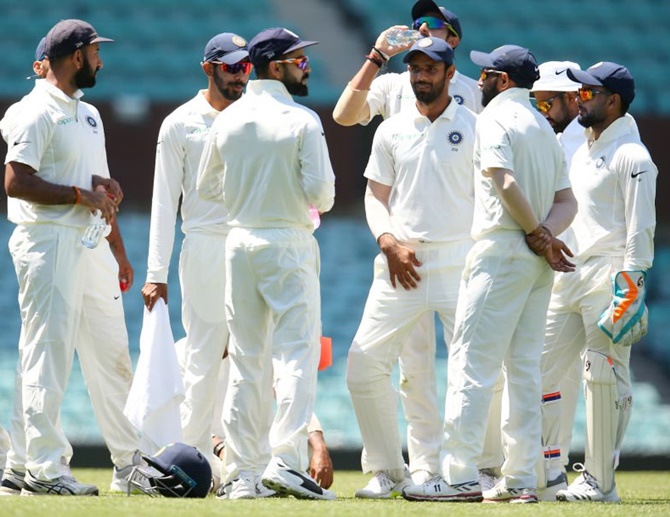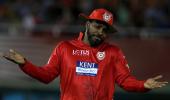Indian touring parties that have left Australia empty-handed over the last 70 years
Virat Kohli's team will have to be at their best with both bat and ball to forge the breakthrough

With Australian cricket still reeling from the wrecking ball that was the Cape Town ball-tampering scandal, India appear to have been handed a golden opportunity to secure a first Test series triumph Down Under over the next month.
Winning on Australia's sun-baked tracks is still among the toughest propositions in cricket, however, so Virat Kohli's team will have to be at their best with both bat and ball to forge the breakthrough even given the propitious circumstances.
Kohli leads a side bristling with brilliant batting talent, not least his own, but that has also been true of many of the 11 previous Indian touring parties that have left Australia empty-handed over the last 70 years.
That India have won just five of 44 Tests over those seven decades is indicative of the scale of the task Kohli faces if he is to inscribe his name in the honour roll marked 'great Test captains'.
The man who would have been Kohli's opposite number, and who the Indian recently replaced as the top-ranked batsman in the world, will not face so much as a single delivery during the series, which starts at Adelaide Oval on Thursday.
Steve Smith remains sidelined from international cricket along with David Warner by the ban he received for his part in the infamous events in South Africa in March, when the ball-tampering scandal rocked the Australian game to its foundations.
The loss of two of the finest batsmen in the world would gut any batting order and Australia have indeed shown the brittleness that comes with inexperience and lack of confidence over their last few international outings.
The scandal's impact has not been limited to the nuts and bolts of putting an innings together, however, and the Australians have been forced to take a long, hard look at how they play the game.
Tim Paine, selected to replace Smith as captain more for his character than for his batting and glovework behind the stumps, faces the task of redefining the Australian style without the verbal aggression that had become its trademark.
His efforts are almost certain to be sorely tested as recent series against India have often been fractious, from the 'Monkeygate' affair of 2008 to the row over Smith looking to the team dressing room for advice on reviewing decisions.
It was Kohli who called Smith out on the latter matter in India about two years ago and the 30-year-old has made it eminently clear he is not cut from the same cloth as the deferential Indian captains of yesteryear.
That assertiveness could end up exposing him to the worst excesses of the Australian media, whose playfulness has been known to develop a vicious streak if a home triumph is threatened.
For all those factors, however, it is likely that the series will be decided not by fluent strokeplay, or even media banter, but by the men whose job it is to knock wickets over.
Recent history shows that it is bowling - particularly of the pace variety - that wins Tests in Australia.
Only South Africa, with their experienced hard-track quicks, and England, whose disciplined battery of seamers led them to victory in the 2010-11 Ashes series, have won series in Australia over the last decade.
India's Mohammed Shami, Bhuvneshwar Kumar, Umesh Yadav and Ishant Sharma have the chance to join the likes of Dale Steyn, Morne Morkel, Stuart Broad and James Anderson in being able to boast they managed to conquer Australia.
Against that quartet, India's hosts can range possibly the best attack in the world in Australian conditions with the pace trio of Josh Hazlewood, Mitchell Starc and Pat Cummins complemented by the bouncy off-spin of Nathan Lyon.
Whether that will be enough to maintain Australia's home record against India will only be after a month of intense test cricket at the Adelaide Oval, the new Perth Stadium, and the Melbourne and Sydney Cricket Grounds.












